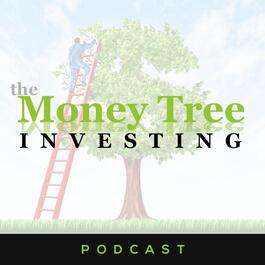
Today we go down the AI rabbit hole. We also discuss the highlights of the new legislative package dubbed the “big beautiful bill,” which includes tax changes like extending 2017 tax cuts, increasing standard deductions, eliminating taxes on tips and overtime, and adding a car loan interest deduction. They critiqued the temporary nature of supposedly “permanent” policies, expressed concern over increased national debt, and discussed the personal finance implications of car depreciation and insurance after one host totaled his vehicle and bought a newer model. We also talk about the potential of lower interest rates. We discuss: The recent (and short-lived) Israel-Iran conflict and it's comparisons to past rushed declarations of victory. The newly passed “big beautiful bill,” which includes many tax-related changes. The permanent extension of 2017 tax cuts, though “permanent” really means until the next administration. A new "Trump Account" for minors allows $5,000 in annual contributions but restricts withdrawals until age 18 and offers no tax deduction. Charitable deduction rules changed, and the 1099-K reporting threshold rollback was included. Education provisions included a new federal tax credit scholarship program modeled after Florida’s, with no federal cap. Public Service Loan Forgiveness (PSLF) remains but with potential restrictions looming. Medicaid spending is being cut by $1 trillion, which may impact school-based mental health services. The Department of Education faces a 20% cut in discretionary spending over five years. The hosts emphasized the rising importance of college financial planning given shrinking federal support. Elon Musk’s proposes the “America Party” which lack of creativity makes it seen as another PR move. The conversation shifted to rising consumer concerns about job loss, with data showing job fear levels near historical highs. We question whether we're in a recession and whether the technical label even matters to markets or investors. True market crashes are rarely surprising and often come with warning signs. Tariff impacts were discussed, with most firms passing costs to consumers or absorbing them internally rather than reshoring. Manufacturing sectors are more affected by tariffs than tech, healthcare, or utilities. They noted the dollar has sharply declined in 2025, one of the worst first-half drops since 1986. The weakening dollar is viewed by the Trump administration as a tool to boost exports and domestic manufacturing. Today's Panelists: Kirk Chisholm | Innovative Wealth Douglas Heagren | ProCollege Planners Follow on Facebook: https://www.facebook.com/moneytreepodcast Follow LinkedIn: https://www.linkedin.com/showcase/money-tree-investing-podcast Follow on Twitter/X: https://x.com/MTIPodcast For more information, visit the show notes at https://moneytreepodcast.com/ai-rabbit-hole-729
From "Money Tree Investing"


Comments
Add comment Feedback